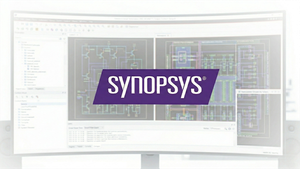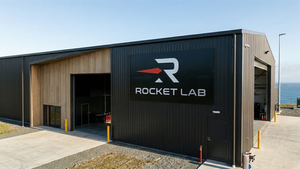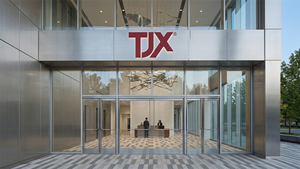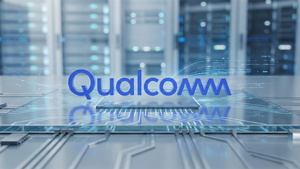
San Francisco, CA – October 8, 2025 – Nvidia (NASDAQ: NVDA), the undisputed titan of artificial intelligence (AI) hardware, has once again shattered expectations, reaching an astounding market capitalization of over $4.5 trillion. This monumental achievement not only solidifies its position as the world's most valuable company for a period but also sends profound ripple effects across the entire technology sector and the burgeoning AI industry. The company's relentless innovation and overwhelming dominance in AI chip manufacturing are not just driving its own stratospheric growth but are fundamentally reshaping investment priorities, competitive landscapes, and the very future of intelligent computing.
Nvidia's extraordinary ascent is a testament to the insatiable global demand for AI capabilities, with its Graphics Processing Units (GPUs) serving as the indispensable backbone for training and deploying advanced AI models. This unparalleled success has ignited a fervent bullish sentiment across AI-related stocks, propelling the Indxx Global Robotics & Artificial Intelligence Thematic Index to over 40% year-to-date returns by October 2025. However, this concentrated rally also sparks critical discussions about market valuations, potential "AI bubbles," and the long-term sustainability of such rapid growth, forcing investors and industry leaders to recalibrate their strategies in an increasingly AI-driven world.
Nvidia's Unprecedented Dominance and Market Impact
Nvidia's journey to becoming a $4.5 trillion behemoth has been marked by a series of unprecedented milestones. After surging over 170% in 2024, the company officially joined the elite $3 trillion market capitalization club in January 2025. By October 8, 2025, its market value had climbed above $4.5 trillion, briefly positioning it as the world's most valuable company. On this very date, Nvidia's stock hit an all-time high of $191.05, reflecting continued investor confidence. Financially, the company reported record revenues for the second quarter of fiscal year 2026 (ended July 27, 2025), reaching $46.7 billion, a 56% year-over-year increase, with data center revenue alone accounting for $41.1 billion. For the first nine months of fiscal 2025, revenues soared to $91.2 billion, a 135% increase year-over-year.
This explosive growth is primarily fueled by Nvidia's near-monopoly, estimated at over 90%, in the high-performance GPU market, essential for AI training and inference. Its H100 AI GPUs have become the industry standard, with the upcoming Blackwell GPU platform poised to further extend its technological lead. The company's proprietary CUDA parallel computing platform acts as a significant competitive moat, deeply embedding Nvidia's hardware into the AI development ecosystem. Strategic partnerships with hyperscalers like Microsoft (NASDAQ: MSFT), Amazon (NASDAQ: AMZN), Google (NASDAQ: GOOGL), and Meta (NASDAQ: META), who are all heavily investing in AI infrastructure, further solidify its market position. While a brief $600 billion market cap loss in January 2025 due to the emergence of DeepSeek, a Chinese AI startup offering a lower-cost model, highlighted potential competitive pressures, Nvidia's swift recovery underscored the enduring demand for its advanced solutions and its resilience in the face of emerging rivals.
The Shifting Tides: Winners and Losers in the AI Era
Nvidia's unparalleled success creates a clear delineation of winners and losers within the technology and financial markets. The most immediate beneficiaries are the hyperscale cloud providers—Microsoft (NASDAQ: MSFT), Amazon (NASDAQ: AMZN), Google (NASDAQ: GOOGL), and Meta (NASDAQ: META)—who are Nvidia's largest customers, investing billions into building AI factories powered by Nvidia's GPUs. Their ability to offer cutting-edge AI services directly hinges on access to Nvidia's technology, positioning them to capture significant market share in AI-driven applications. Companies supplying critical AI infrastructure components, such as Amphenol (NYSE: APH), Corning (NYSE: GLW), Teradyne (NASDAQ: TER), Arista Networks (NYSE: ANET), Western Digital (NASDAQ: WDC), Jabil (NYSE: JBL), Celestica (NYSE: CLS), Broadcom (NASDAQ: AVGO), and Marvell (NASDAQ: MRVL), are also experiencing heightened demand for their connectivity, storage, testing, and networking solutions, riding the coattails of the AI boom. Broadcom, in particular, has seen significant stock appreciation due to its custom AI chip opportunities.
Conversely, traditional semiconductor players like Intel (NASDAQ: INTC), which once dominated the chip landscape, face an uphill battle. While Intel is making strides in AI with its Gaudi accelerators, its market share has significantly eroded as Nvidia's GPU-centric approach has become the de facto standard for AI. Even Advanced Micro Devices (NASDAQ: AMD), a strong competitor in CPUs and gaming GPUs, lags far behind Nvidia in AI data center revenue, though any modest gains in this rapidly expanding market could still translate to substantial growth for AMD due to its smaller base. The challenge for these companies is not just technological parity but also establishing a comparable software ecosystem to Nvidia's CUDA, which has a decade-long head start. Companies that fail to adapt their product portfolios or integrate AI strategically into their offerings risk being marginalized in a market increasingly defined by AI capabilities.
Broader Implications and Industry Transformation
Nvidia's meteoric rise signifies a profound transformation within the broader technology sector, particularly in the semiconductor industry. The leadership baton has decisively passed from traditional CPU and memory manufacturers to companies specializing in the "brains of artificial intelligence." Nvidia's market share in the semiconductor industry has tripled since 2020, solidification its status as the world's most valuable and fastest-growing semiconductor brand. This shift is driving the global semiconductor industry towards an estimated $800 billion in revenue in 2025, with AI data center chips being a primary catalyst.
The company's performance also reinforces the influence of the "Magnificent Seven" tech giants, which include Nvidia, Microsoft, Apple (NASDAQ: AAPL), Amazon (NASDAQ: AMZN), Alphabet (NASDAQ: GOOGL), Meta (NASDAQ: META), and Tesla (NASDAQ: TSLA). These firms have disproportionately driven market returns, raising concerns about market concentration and the potential for an "AI bubble" reminiscent of the dot-com era. Analysts warn against a "one-note narrative" around generative AI capital expenditure, suggesting that any faltering in this story could lead to a market downturn. Geopolitical factors also play a significant role, with nations increasingly seeking "Sovereign AI" capabilities, creating a trillion-dollar market opportunity for Nvidia, even as export restrictions to regions like China necessitate strategic adaptations and the development of specialized chip designs.
The Road Ahead: Navigating the AI Frontier
Looking ahead, the short-term outlook for Nvidia remains robust, driven by persistent demand for its Blackwell GPU platform and continued investment in AI infrastructure globally. The company's strategic investments, such as the reported $100 billion commitment to OpenAI to build massive AI factories, underscore its forward-looking approach. Long-term possibilities include further expansion into diverse AI applications, from autonomous vehicles and healthcare diagnostics to advanced manufacturing and scientific research, diversifying its revenue streams beyond traditional data centers. The rapid pace of innovation in AI will necessitate continuous strategic pivots, with companies needing to adapt quickly to evolving hardware and software requirements.
Market opportunities will emerge for innovators in AI software, specialized AI services, and energy-efficient computing solutions, as the sheer power consumption of AI models becomes a growing concern. However, challenges such as intensifying competition from custom AI chips developed by hyperscalers, potential regulatory scrutiny over market dominance, and the ongoing geopolitical landscape will require careful navigation. Potential scenarios range from continued exponential growth, albeit with periodic corrections, to a more fragmented AI hardware market as alternatives gain traction. Investors should closely monitor Nvidia's innovation pipeline, its ability to maintain its software ecosystem advantage, and the broader economic and regulatory environment for signs of shifts.
A New Era of AI-Driven Markets
In summary, Nvidia's journey to a $4.5 trillion valuation is a defining moment for the financial markets and the technology sector. Its unparalleled dominance in AI chip manufacturing, bolstered by the CUDA software platform and strategic partnerships, has not only propelled its own stock to dizzying heights but has also catalyzed a profound industry-wide transformation. While the immediate implications include a surge in AI-related stocks and a reordering of the semiconductor landscape, the long-term impact points to an era where AI is deeply integrated into every facet of technology and business.
As the market moves forward, investors should acknowledge the incredible growth potential within the AI sector, driven by companies like Nvidia. However, they must also exercise caution regarding concentrated market rallies and potential valuation concerns. Key takeaways include the critical importance of AI hardware infrastructure, the power of a comprehensive software ecosystem, and the accelerating pace of technological change. Moving forward, investors should closely watch for competitive advancements, regulatory developments, and the emergence of new AI paradigms. The future of the market will undoubtedly be shaped by the continued evolution of AI, with Nvidia at its forefront, but the landscape will demand vigilance and adaptability from all stakeholders.
This content is intended for informational purposes only and is not financial advice





